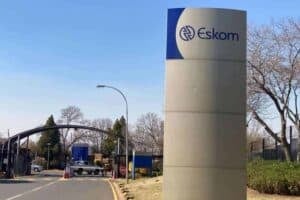According to yet another explosive report by an auditing firm, 'emergency coal' was improperly bought in 2008 for inflated prices from questionable sources.

In yet another revelation to emerge from the continuing saga of investigations into Eskom’s “dark” past, another report from auditing firm Deloitte appears to have fingered a manager at the parastatal who allegedly decided to use the load-shedding crisis to make a quick buck.
TimesLive reported on Wednesday that the Eskom manager, named as the then lead procurement negotiator Koos Jordaan, the man tasked with buying “emergency coal” worth more than R10 billion at the height of the power crisis in 2008, allegedly negotiated a raft of “irregular” contracts – and at least one appeared to have gone to his personal friend.
They also reported that he resigned as soon as an investigation was launched. A criminal case was also opened against Jordaan and reportedly confirmed by the police, but the National Prosecuting Authority told The Times that they had no docket about the matter on which to to decide whether to prosecute.
Deloitte’s investigations are understood to have also led to the Special Investigating Unit getting involved. President Jacob Zuma has allegedly known about Deloitte’s findings since 2014.
Eskom said on Tuesday it had implemented all Deloitte’s recommendations.
The 2015 Dentons report has also been making headlines for similar reasons, having found that Eskom’s senior executives also allegedly benefited from contracts, with coal being bought for as much as 200% more than market prices should have dictated.
TimesLive reports that Deloitte’s findings “strengthen speculation that the blackout emergency, which cost South Africa an estimated R300 billion, was engineered to benefit favoured companies”.
Jordaan, who is reportedly now a senior executive of a private coal company, maintained he had done nothing wrong and the allegations in the Deloitte report were unproved.
He was quoted as saying: “I have nothing to hide. I did [my] best, my utmost best. I think I did a very good job.”
Eskom spokesperson Khulu Phasiwe told Fin24 on Wednesday the power producer shouldn’t be criticised for conducting internal investigations and acting on the recommendations.
“Eskom was concerned about activities going on inside the power utility, which is why it appointed these firms to investigate the matters and acted on those findings,” he said.
Read the full article here.






